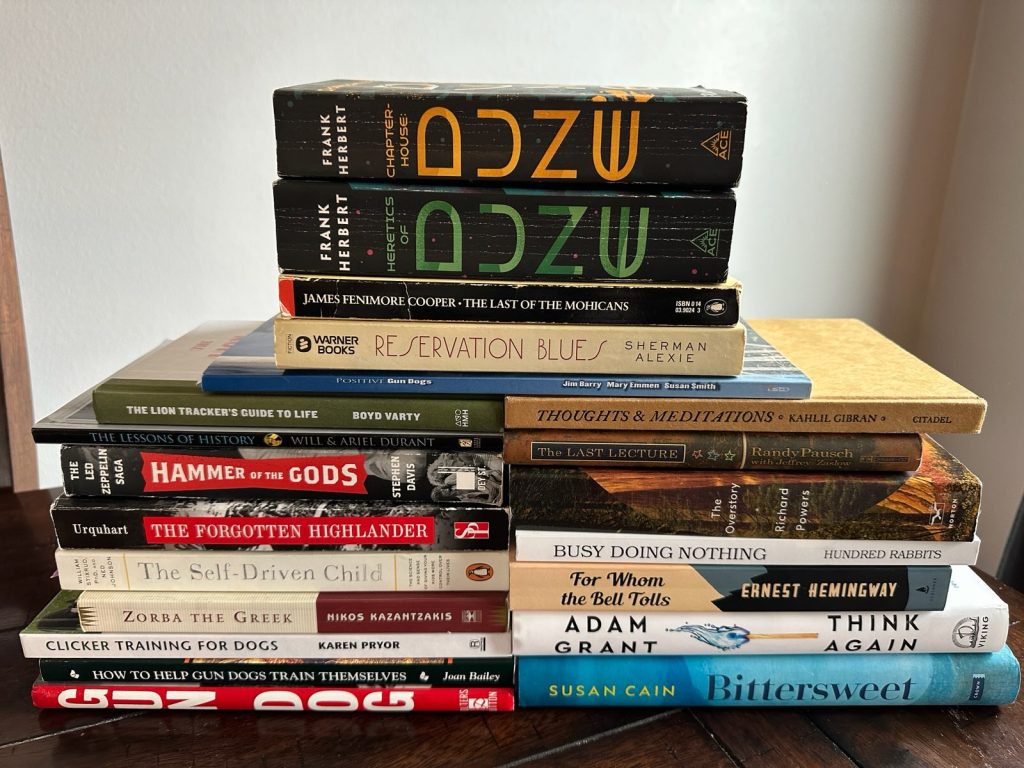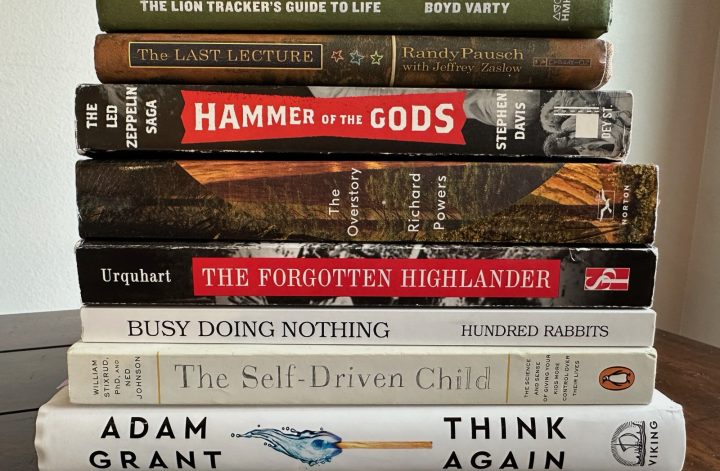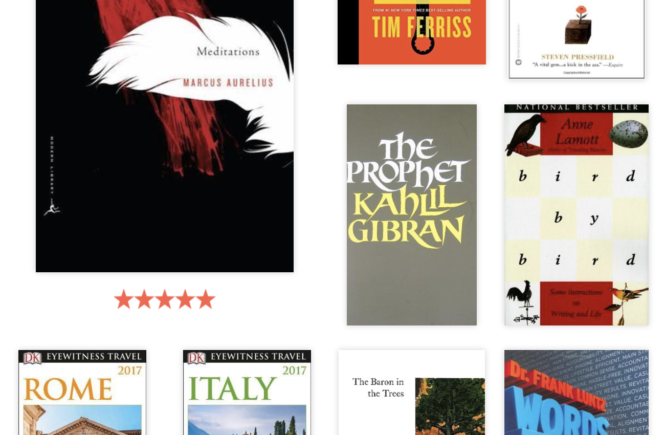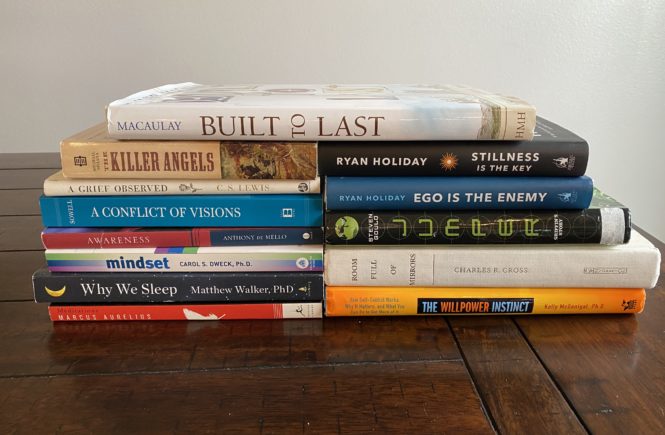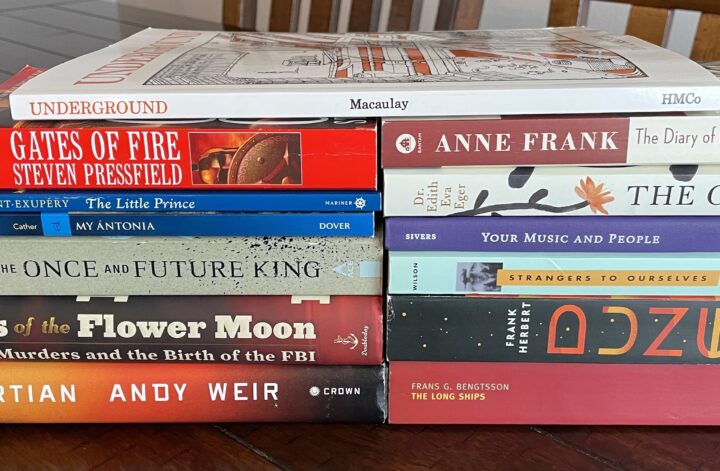I had a hard time getting motivated to read this year. I finished 27 books. It felt like a slog at times, but not with the books below.
Think Again: The Power of Knowing What You Don’t Know by Adam Grant — The book lays out a thesis in favor of keeping an open mind in every situation and suggests rethinking your position often. The first part focuses on self-improvement, the second on helping others rethink, and the third on rethinking in communities and teams. This was one of my favorite books from this year.
Favorite line: What we want to attain is confident humility: having faith in our capability while appreciating that we may not have the right solution or even be addressing the right problem. That gives us enough doubt to reexamine our old knowledge and enough confidence to pursue insights.
Hammer of the Gods: The Led Zeppelin Saga by Stephen Davis — This is a complete biography of the greatest band that ever was. Despite being obsessed with them for the last 30 years, I still learned a ton. Some of the stories are…just wow. I also listened to Beatles ’66, which recounts that band’s transformative year. Both were excellent.
Favorite line: When the band got back to London, the a was taken out of lead so the thick Americans wouldn’t mispronounce it leed.
The Lion Tracker’s Guide to Life by Boyd Varty — The author shares his experience as a lion tracker and uses it as a metaphor for learning his path in life. It’s a short, powerful read.
Favorite line: Suddenly, I feel an old friend who has walked with me for years arise. Each one of us has these friends; mine is called self-doubt. I have learned rather than to resist him, to invite him in, welcoming him as a teacher of humility.
The Overstory by Richard Powers — This is a novel about tree activism. It starts out a bit slow, but if you stick with it you will be rewarded. The writing is beautiful, and I really enjoyed the tree knowledge bomb. Expect a lot of ambiguity, though.
Favorite line: That’s life; the dead keep the living alive. Every other night she asks her missing friend for words and phrases. For courage. For enough forbearance to keep from pitching her notes into the wood-burning stove.
The Last Lecture by Randy Pausch, Jeffrey Zaslow —This is a retelling of Randy Pausch’s last lecture at Carnegie Mellon, sharing his life lessons after learning he was diagnosed with terminal cancer in his mid-40s. It’s a tearjerker, as he meant it to be his legacy and eventual message for his grown children.
Favorite line: We’ve placed a lot of emphasis in this country on the idea of people’s rights. That’s how it should be, but it makes no sense to talk about rights without also talking about responsibilities. Rights have to come from somewhere, and they come from the community….Everyone has to contribute to the common good. To not do so can be described in one word: selfish.
The Self-Driven Child by William Stuxrud & Ned Johnson — The authors argue that kids need a high sense of control in order to be self-driven and then provide techniques to accomplish it. I read this earlier in the year and now realize I need to go back over my highlights and implement some of it.
Favorite lines (I had highlights on almost every page):
Parents commonly feel responsible for policing homework without thinking about the underlying goal: to raise curious, self-directed learners.
When your kid is upset, your amygdala reacts, which makes it even harder to be calm. This is why so many parents find themselves, ironically and often comically, angrily yelling at their kids for losing their temper.
Busy Doing Nothing by Rekka Bellum & Devine Lu Linvega — During the pandemic, a Canadian couple completed their circumnavigation of the Pacific in their small sailboat. This is their self-published account of the last leg—a 51-day journey from Japan to Canada. I learned a lot about sailing and storing food and that I no longer wish to do anything like this!
Favorite line: Upon our arrival after spending 7 weeks at sea, the Canadian Customs asked us to quarantine for 2 more weeks.
Gai-Jin and King Rat by James Clavell —I listened to the next two books in Clavell’s Asian Saga series. Gai-Jin is set in 1860s Japan and is loosely based around the aftermath of the killing of a British trader along the Tōkaidō Road. King Rat is another novel, but based on the author’s real experiences surviving a Japanese POW camp during WWII. Coincidentally, I also enjoyed Alistair Urquhart’s memoir, The Forgotten Highlander, of surviving the same POW camp en route to working on the bridge on the river Kwai. He then survived being shipwrecked and working at a mine near Nagasaki before his camp was liberated at the end of the war.
Favorite line (from King Rat): It’s amputate or die. Simple. And when it comes down to it, you can’t die. Not yet. Once you’re born, you are obligated to survive. At all costs.
Honorable mentions:
I finished the last two books in the six-part Dune series, which I really enjoyed after struggling through books 2–4 last year. I also read several books on dog training in anticipation of getting a new pup earlier this year. All four—Clicker Training, Gun Dog, Positive Gun Dogs, and How to Help Gun Dogs Train Themselves—have been very helpful. I listened to the first two volumes in Will & Ariel Durant’s Story of Civilization and learned a ton. Despite being a bit academic, I plan to continue listening to the rest of these.
